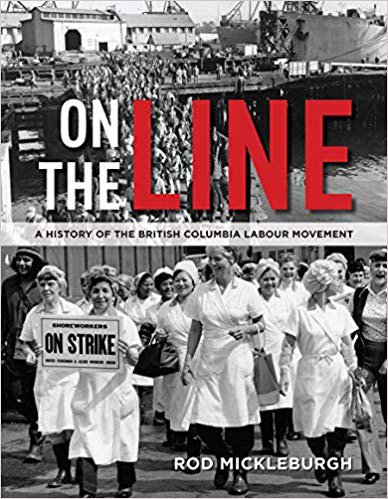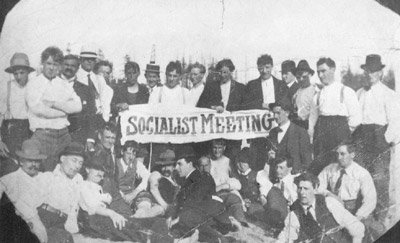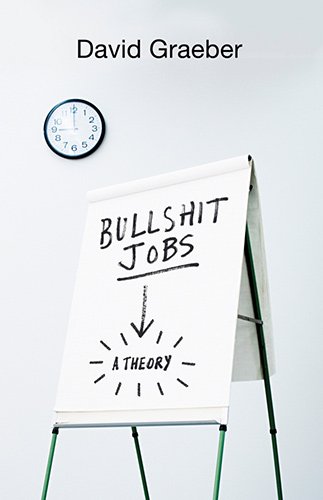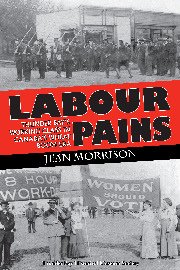Unions and Workers
On The Line is an account of BC trade unions by the BC Labour Heritage Centre (an offshoot of the BC Federation of Labour) written by retired Vancouver Sun labour reporter Rod Mickleburgh. In a well illustrated and lively manner he tells the story of workers’ organizations and struggles, from Vancouver Island Coal miners in the 1850s to teachers’ struggles today.
Canada’s transition to an urban, industrial wage working economy took place from 1850 to 1921. In the 1850s Canada was an overwhelmingly rural place dependent on the harvest and export of resources, mostly fish and lumber, but increasingly agricultural as Canada became one of the world’s leading dairy and wheat exporters by 1900. Over time new minerals like silver and nickel and energy resources like coal and hydro were also exported, reorienting the export economy from Europe to the United States.
In his colourfully titled new book Bullshit Jobs: A Theory, David Graeber expands on an argument he first made in a 2013 essay that first appeared in Strike! That essay, called “On the Phenomenon of Bullshit Jobs,” went viral over the internet so quickly that the original web page received over a million hits and crashed the Strike! server.
This is a study of working class formation. In particular, it is the story of the most advanced Thunder Bay (then Fort William and Port Arthur) workers from the 1880s to World War One as measured by such forms of autonomous institutional completion as trade unions and political parties.




